Tag Archives | Ganeshan Wignaraja
Industry and trade, Regional cooperation and integration
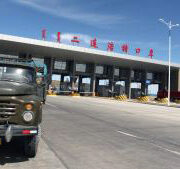 Industry and trade, Regional cooperation and integration
Industry and trade, Regional cooperation and integration
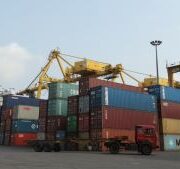 Industry and trade
Industry and trade
 Regional cooperation and integration
Regional cooperation and integration
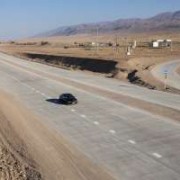 Finance sector development
Finance sector development
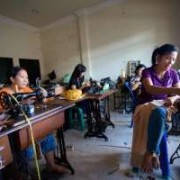 Regional cooperation and integration
Regional cooperation and integration
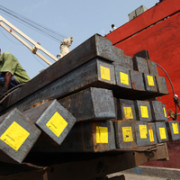 Finance sector development
Finance sector development
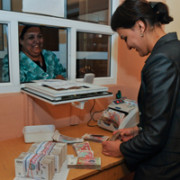 Industry and trade
Industry and trade
 Industry and trade
Industry and trade
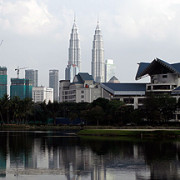 Economics
Economics
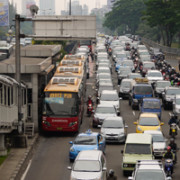
TPP and RCEP – friends not foes

Talks just concluded in Auckland, New Zealand on Saturday show that plans for the Regional Comprehensive Economic Partnership (RCEP) are advancing. Just as both Hillary Clinton and Donald Trump, the next potential leaders of the Trans-Pacific Partnership’s (TPP) biggest partner—the US—have distanced themselves from the agreement. Some even suggest that the US Congress won’t ratify the TPP agreement, and warn that the world economy risks US isolationism.
RCEP – a life raft for trade liberalization in Asia

There seems to be a pushback against trade agreements in the post global financial crisis era. The Trans-Pacific Partnership (TPP) was signed in early 2016, but US presidential candidates have spared no effort criticizing it so near-term ratification is highly uncertain. The WTO Doha Round is in the deep freeze after 14 years of negotiations. Unilateral trade liberalization has virtually come to a standstill.
What Africa can learn from Asian supply chains

At this week’s 10th World Trade Organization (WTO) Ministerial Conference in Nairobi, Kenya, trade ministers are trying to advance 15 years of Doha Development Agenda talks to reduce trade barriers. The real issue, however, is whether African economies can follow East Asia's success in global supply chains amid “new normal" growth and rising inequality.
Mega-regional infrastructure initiatives – Asia’s new noodle bowl?

One of the striking lessons from Asia’s success over the past few decades is that it makes economic sense to invest in regional infrastructure to link two or more countries to support outward-oriented development strategies.
4 ways to boost SME access to finance from commercial banks in ASEAN

Concerns about moderating economic growth and rising income inequality in ASEAN economies have brought small and medium-sized enterprises (SMEs) into the policy limelight. Arguing that SMEs have significant potential for creating jobs, some commentators are suggesting a host of industrial policies such as financial subsidies and local content rules to promote SMEs. However, government failure may result from heavy-handed state intervention for SMEs.
Potential gains from closer cooperation between South Asia and Southeast Asia

South Asian and Southeast Asian economies have all embraced an outward-oriented development strategy, albeit to different degrees. The result has been an impressive increase in international trade, foreign direct investment (FDI) inflows, and significant productivity improvements, which in turn have contributed to important socio-economic gains. Indeed, some of these economies have delivered among the most striking economic performances in the world.
Why do we need financial education in Asia?

This article assesses the case for promoting financial education in Asia. It argues that the benefits of investing in financial education can be substantial. Data are limited, but indicate low financial literacy scores for selected Asian countries. As economies develop, access to financial products and services will increase, but households and small and medium-sized enterprises (SMEs) need to be able to use the products and services wisely and effectively. More effective management of savings and investment can contribute to overall economic growth. Moreover, as societies age and fiscal resources become stretched, households will become increasingly responsible for their own retirement planning. Asia’s evolving experience suggests that more national surveys of financial literacy are needed and that coherent, tailored national strategies for financial education are essential for success.
Plurilateral trade agreements: an overlooked but powerful force for international trade opening for Asia?

After over a gloomy decade of inconclusive talks, a small but important step was taken in early December 2014 to finish the Doha Round negotiations of the World Trade Organization (WTO). In 2015 and beyond, actions to arrive at a Doha Round Agreement should be accompanied by embracing new plurilateral trade agreements within the WTO. This move can benefit growth and development in Asia. This article reviews the outlook for the WTO Doha Round and examines the case for plurilateral trade agreements for Asia.
SME internationalization through global value chains and free trade agreements: Malaysian evidence

Regionalism in Asia led by global value chains (GVCs) and free trade agreements (FTAs) has increasingly put the spotlight on small and medium-sized enterprises (SMEs). As one of Asia’s success stories in internationalization, Malaysia offers interesting insights. Drawing on research on Malaysian enterprises, this article examines the characteristics of SMEs which have successfully internationalized by participating in GVCs and FTAs and explores their policy implications. It seeks to improve our understanding of the internationalization of SMEs in Asia and contribute to the scant literature.
ASEAN Economic Community 2015: What is next?

In 2007, the 10-member Association of Southeast Asian Nations (ASEAN) bloc adopted the goal of creating an integrated economic region—termed the ASEAN Economic Community (AEC)—by December 2015. However, concerns have been expressed that the regional integration project’s 2015 deadline will be missed due to an overly ambitious timeline and too many ill-thought-out initiatives. With the AEC deadline looming, this article critically assesses the progress that has been made, charts some of the main challenges, and suggests the next steps for the AEC.


Search
Subscribe / Connect to Asia Pathways
Subjects
- Accelerating Progress in Gender Equality
- Addressing Remaining Poverty and Reducing Inequality
- Agriculture and natural resources
- Capacity development
- Climate change
- Economics
- Education
- Energy
- Environment
- Finance and Innovation
- Finance sector development
- Gender
- Globalization and Economic Stability
- Governance and public sector management
- Health
- Industry and trade
- Information and Communications Technology
- Infrastructure
- Making Cities More Livable
- Miscellaneous
- Population
- Poverty
- Private sector development
- Regional cooperation and integration
- Sanitation
- Social development and protection
- Strengthening Governance and Institutional Capacity
- Subjects
- Transport
- Uncategorized
- Urban development
- Video Blog
- Water
Recent Posts
- From Crisis to Resilience: The Evolution of the Banking Sector in Asia and the Pacific
- Tariffs on the Table: What Could Be Asia’s Next Move?
- Investing in Childcare a Win for Women and the Economy
- Flush and Flourish: Upgraded Toilets Can Transform Lives in Rural Asia
- New Ways for Climate Finance and Development in Asia and the Pacific




Recent Comments